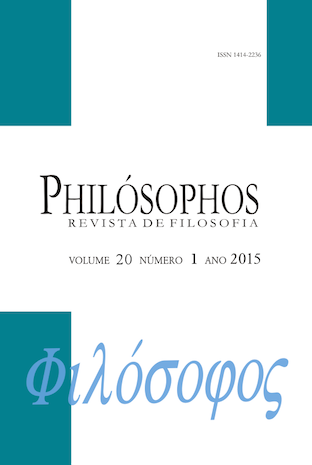INTERFACES OF NATURE AND OF SOCIETY IN THE WORK OF GABRIEL TARDE
DOI:
https://doi.org/10.5216/phi.v20i1.33482Keywords:
monad, agreement, science, society.Abstract
This article presents the Gabriel Tarde’s monadology and imitation philosophy to show its complementarity in the constitution of a “universal sociological point of view”, the sociological interpretation of all phenomena, material (vibratory), biological (hereditary) and human (imitative). On the one hand Tarde establishes a neo-monadology by opening Leibniz's closed monads. The open monads constitutes, through their mutual possessions, the agreements and harmonies that Leibniz explained by the system of pre-established harmony. These agreements are monadic societies of many types who explain the constitution of any phenomenon. On the other hand Tarde tries, through its imitation philosophy, to provide a scientific substrate to an emerging sociology, taking the imitation as the anthropological aspect of an associative activity that is present in the entire cosmos. Thus, trying to purify to depurate the social science’s own subject, Tarde find a kind of causality that, for the clarity by which she offers itself to the observer on the human societies, is extended to the entire nature, illuminating the obscure and inaccessible background in which the monadic associations take place.Downloads
Downloads
Published
How to Cite
Issue
Section
License
Authors who publish in this journal agree to the following terms:
- Authors retain copyright and grant the journal right of first publication, with the work simultaneously licensed under a Creative Commons Attribution License that allows others to share the work with an acknowledgement of the work's authorship and initial publication in this journal.
- Authors are authorized to enter into separate, additional contractual arrangements for the non-exclusive distribution of the journal's published version of the work (e.g., publishing in an institutional repository or as a book chapter), with an acknowledgement of its authorship and initial publication in this journal.















